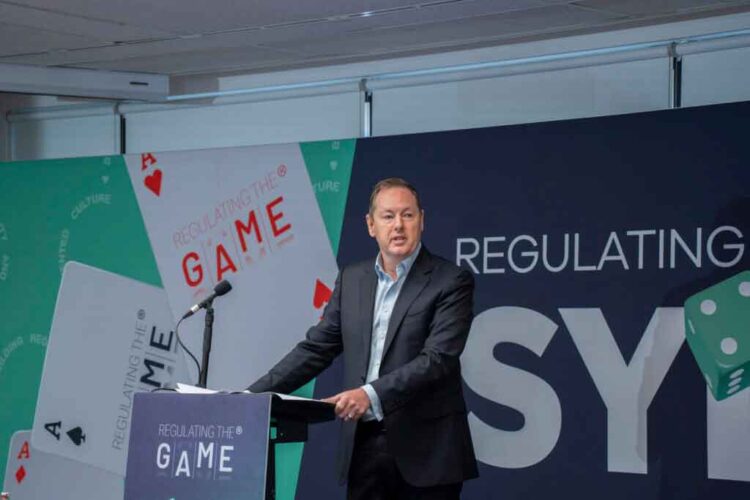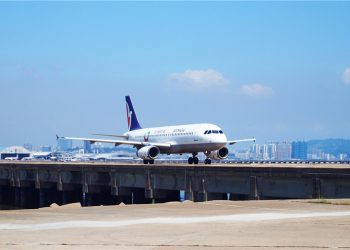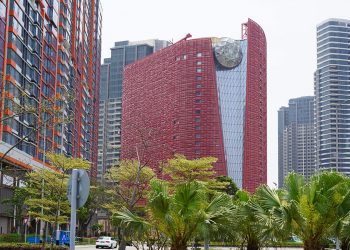Tabcorp Managing Director and CEO Adam Rytenskild has warned that Australian towns and cities will soon resemble the high streets of London with their proliferation of gambling brands if state regulators don’t crack down on attempts by online betting competitors to hack the retail wagering market.
His comments, delivered during a Keynote Address at this week’s Regulating the Game conference in Sydney, come with Tabcorp embroiled in a legal stoush with rival Ladbrokes over the launch of Ladbrokes Lounges in select pubs and clubs across the country, part of a deal it signed with the Australian Hotels Association (AHA) last October.
Tabcorp holds exclusive retail wagering licenses across most of Australia, however the Ladbrokes Lounges are designed to push patrons to bet on the company’s online sportsbook by way of extensive branding and signage. Tabcorp, which only months ago secured a new 10-year deal for exclusive retail wagering rights in Victoria, has launched legal action to discover more information about Labdrokes’ AHA deal.
“Governments have to be very clear about what they want and I don’t think there is any intention in Australia for our high streets to look like London high streets with a proliferation of gambling brands,” Rytenskild said on Wednesday.
“If that’s the case they should consciously do that and the Victorian government considered that as part of the licensing process, but they decided that an exclusive operator was the way to go and everyone had a chance to bid for that.
“It’s great credit to a number of states that are actively enforcing retail exclusivity and investigating attempts by [Ladbrokes] to create a retail industry. We believe this isn’t consistent with what governments want to achieve with retail and is also directly in breach of our retail exclusivity agreements.”
Rytenskild added, “The deregulation of wagering in pubs and clubs will lead to a proliferation of brands and advertising throughout the state that no government or regulator intended or wants, let alone the compliance nightmare it would create. Being conscious and firm on this is critical because frankly, the intent of Ladbrokes Lounges is to rely on regulators to be slow and to make it too big a problem to be solved before you figure out how to deal with it.”
The Tabcorp boss also urged lawmakers to be proactive in updating relevant legislation, having conceded that some state laws may not allow regulators to act against the Ladbrokes Lounge concept.
“It’s something regulators have been grappling with,” he said. “The great thing about the new [Victorian] license is that it allows for an update to the regulations and legislation to be consistent with the times, and the government has thought about how they can craft that regulation in such a way that it anticipates technologies that haven’t been invented yet or are evolving quite fast. They are trying to future proof that legislation.
“In Victoria we will absolutely have that protection and in Queensland the government has showed the intent with the legislation to see if what they have is workable or if they need to strengthen it.
“Current legislation had good intent, but technology has caught up and now a loophole has been attempted to be exploited.”
Separately, Rytenskild raised concerns over another loophole in legislation designed to reduce the tax legacy on-course bookmakers are required to pay, pointing to larger entities who were utilizing white label apps and websites to avoid taxation and regulation under the guise of on-course bookmaker licenses.
While he said Tabcorp supports the intention of the legislation to protect bookmakers who form “part of the fabric of the racetrack experience”, he said larger operators were using white label wagering platforms to create spinoff entities and apps under different names to remain below the tax threshold.
“This is a very real loophole that is being gamed,” he said. “The tax threshold was brought in to assist single legacy on course bookmakers but in the last two years a number of these sites have grown tenfold. To the best of our knowledge there are more than 140 operating and they need to be dealt with immediately.”


































